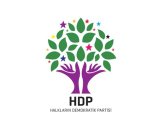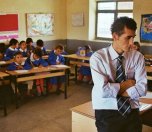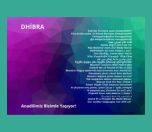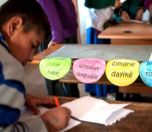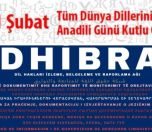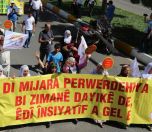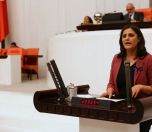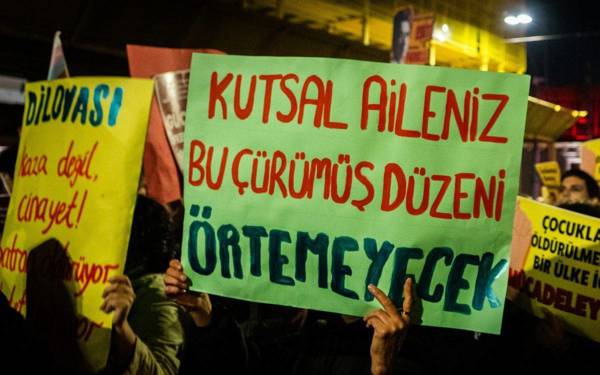* Photo and video: Evrim Kepenek / bianet
Click to read the article in Turkish / Kurdish
“Yə tχəλ a ċəċa a.Ša ɣa-la.na.w.mə.t za bza a.wádya-ba, za λamsá dəwa.wt. Dunay ɣa t°axə´-bza ɣa a.ċʼanə za tə´t Tevfik Esenç 08.10.1992 gə´ dəwa.qʼa. Wana´ ɣafa t°axə´-bza a.bayna.wə.qʼa. A ċəċa.n Türkiye gə´ yə tχəλ a.mə.məs˙a.fa.n, a.mə.ša ɣa-la.fa.n, a.mə.tχə.fa.n. 08.10.1992 λáqʼala; š´ə.nanaw-warad, š´ə.mas˙a, š´ə.warada, š´ə.wadya.qʼa.n yə c°aɣ̅°ə. Dunay ɣa´w.bza “na´-bza ɣa´ məṡ°a” txa´ž´ š´əx! “yə´zaqʼala a t°axə´-bza a č´aqʼa´” a. qʼa´. qʼa´ Tevfik Esenç ala a č´aqʼa´”
You read these sentences, tried to read them but could not understand...
In fact, these sentences were uttered in a language that used to be spoken and heard in this land.
Today, no one understands, speaks or reads this language. With the death of Tevfik Esenç, the last person who could speak Ubykh, the language of Ubykh community, this language has also been buried under ground.
Over 40 civil society actors forming the Network for Monitoring, Documenting and Reporting on Language Rights (DHİBRA), including IPS Communication Foundation/bianet, have marked the February 21 International Mother Language Day with the Ubykh language.
'All mother languages of unique value for humanity'

The February 21 International Mother Language Day Celebration held in the Middle East Technical University (METU) Alumni Association in İstanbul was attended by several people including representatives from at least 22 communities, Patrak Estukyan from Agos newspaper, Nadire Mater from bianet and journalist Tuğrul Eryılmaz. While Bülent Bilmez, Erdoğan Yılmaz, Elif Yıldız, Meral Çare, Gül Hür, Eyyüp Subaşı and Ayça Atçı from the DHİBRA also attended the celebration, Meral Çare read out the following statement on behalf of the Network:
"As the Network for Monitoring, Documenting and Reporting on Language Rights (DHİBRA), we are marking the 2020 International Mother Language Day with a short text written in an extinct language belonging to the Ubıh community exiled from the Caucasus to the Ottoman Empire.
"Today neither we who wrote and signed this statement – nor anyone in Turkey – can read or understand the text above. The reason is that the Ubıh language was buried with the last person who spoke it, Tevfik Esenç, who died on October 8, 1992.
'Respect all mother languages'
"With his death, we lost one of our languages in this country together with its fables, requiems and lullabies...
"In order to develop friendship, collaboration and solidarity among civil society actors engaged on mother languages and the linguistic plurality of Turkey, we have come together for February 21, the day declared by UNESCO on November 17, 1999 as International Mother Language Day.
"As an expanding network, we invite everybody to respect all mother languages and closely follow violations and positive developments relating to linguistic rights.
'Support the activities, participate in the events'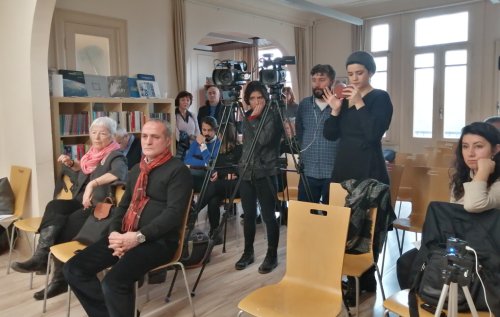
"Marking this meaningful day, we would like to emphasize the practical and moral significance and unique value of all mother languages, especially minority, threatened and extinct languages.
"We advocate that pluralism should triumph in every area of our lives so that all obstacles to the use of mother languages be lifted, every person continue to live with their mother language as they want, and linguistic plurality be seen as the guarantee for peaceful coexistence.
"As participants of a network working on our mother languages or linguistic plurality, we invite everybody with at least one mother language to be aware of and sensitive to violations of language rights and to work to advance linguistic rights.
"In order to make this awareness and effort permanent, please do support all activities and participate in the events relating to 21 February Mother Language Day.
"Happy 'Mother Language Day' to all the languages of the world!"
'Happy 'Mother Language Day' to all languages!"
After the statement translated into 22 languages, the representatives of the languages of Abaza (Abhazca - Apsua dialect), Adyghe (West), Adyghe (East), Arabic, Albanian, Western Armenian, Georgian, Homshetsi, Kurmanjî, Laz, Greek and Zazaki said in their own languages: "'Happy 'Mother Language Day' to all the languages of the world!"
CLICK - Read the multilingual version of the statement
DİBRA prepares a Report on Mother Language Lessons
Speaking to bianet about the the Network for Monitoring, Documenting and Reporting on Language Rights (DHİBRA), Prof. Bülent Bilmez has emphasized the following: "First of all, we came together in September 2019 following two workshops. The Association has been formed by different actors from the society such as associations, periodicals and publishing houses... More precisely, it is still being formed. Because it has not yet been formed, we are talking about an ongoing process of formation. This process has not yet been completed in two ways. "Firstly, it has not yet completed its own principles and conceptual framework. Secondly, the ones joining this network have not yet been completed. There are some people and institutions that we cannot reach. Those who you see here are the ones who have come together for February 21, they have formed this statement. As I have said, the network itself is still in a process of formation. The network will continue developing. We are open to new participants in that respect. "We now have one more work before us. We are first preparing a report on mother language lessons. We have a report that we are trying to make ready before the start of the new school year. It is a report on the quality of these lessons. Moreover, we also have works about language rights and informing the people. "An important feature of this Network is that participants can join the process not only by name, but by intervening in the process themselves. For instance, the statement we have just read was formed with the intervention of all participants from the very beginning." |
| Languages | Translators | Readers | |
| 1 | Turkish | - | Meral Çare |
| 2 | Abaza Language (Abhazca - Apsua Dialect) | Ahocba İrfan Okuyucu | Zafer Süren |
| 3 | Adyghe (West) | Jıneps Newspaper | Osman Aydın |
| 4 | Adyghe (East) | Jıneps Newspaper | Saniye Boran |
| 5 | Arabic | Ahmad Zakaria | Ufuk Sultanoğlu |
| 6 | Albanian | Kamil Bitiş | Bülent Bilmez |
| 7 | Western Armenian | Can Erzurumluoğlu | Can Erzurumluoğlu |
| 8 | Georgian | Georgian Language Center | Fehmi Uzal |
| 9 | Homshetsi | Hikmet Akçiçek | Cemil Aksu |
| 10 | Kurmanjî | Eyyüp Subaşı | Bahattin Akhan |
| 11 | Laz | İrfan Çağatay | İrfan Çağatay |
| 12 | Greek | Danai Palakoğlu, Vasiliki Hristodulu | Danai Palakoğlu |
| 13 | Zazaki | Cemal Taş | Cemal Taş |
Signatories Agos Armenian Supplement, Association for the Raised from Aramyan School, Arabic-Alevi Youth Assemblies, Aras Publishing, Avesta Publishing, Avlaremoz Platform, bianet, Ehliddar, El Amaneser, Gazete Sabro, Gor Hemşin Culture Language History Magazine, Georgian Language Center, Georgian News Portal, Georgian Cultural Center, Homshetsi Research and Memorcial Association, Heyamola Publishing, İsmail Beşikci Foundation, İstanbul Arabic Alevi Assembly, İstanbul Caucasian Cultural Association, İstos Publishing, Jıneps Newspaper, Federation of Caucasian Associations, Kurdish Research Association, Laz Cultural Association, Medya Bookstore, Mezopotamya Language and Culture Research Association, Mızağe Magazine, Nor Zartonk, Ogni Magazine, Peywend Publishing, RUMVADER, Sefarad Culture Research Center, Şamil Education and Culture Foundation, Syriac Associations Foundation, Cultures of Turkey Research Group, Uncire Magazine, Vejiyaişê Tiji (Tij Publishing), Weşanxaneyê Vateyî (Vate Publishing), Life Memory Freedom Association, 1864 Memory Center. |
(EMK/SD)







